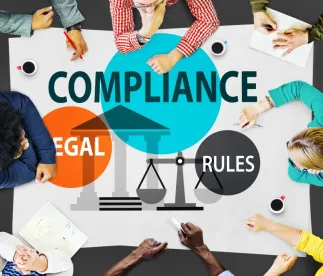Highlights
-
DOJ issues new guidance to prosecutors regarding how to resolve investigations of corporate misconduct
-
Companies with an effective compliance program and strong culture of compliance can expect tangible benefits
-
DOJ looks to incentivize companies to quickly investigate allegations of misconduct and promptly turn over the results to the government
In remarks made in New York City on Sept. 15, 2022, Deputy Attorney General Lisa O. Monaco of the U.S. Department of Justice (DOJ) outlined increased emphasis on corporate compliance programs and individual accountability in the Department’s investigation and resolution of corporate wrongdoing.
Specifically, Monaco noted what she characterized as new changes to DOJ enforcement policy in the investigation of criminal wrongdoing by corporations, with a focus on five primary topics:
-
Individual accountability
-
History of misconduct;
-
Voluntary self-disclosure;
-
Independent compliance monitors
-
Corporate culture
Monaco’s comments are an extension and strategic deployment of guidance she previously gave on these issues. That said, it is clear the DOJ intends to step up its game and increase its investment in resources for the investigation and prosecution of bad corporate actors. Now more than ever, companies need to view a sound corporate culture of compliance and a well-developed compliance program as an essential element of good business.
Individual Accountability
In her speech at the New York University School of Law, Monaco noted that corporate counsel often strategically delay the production of evidence indicating individual criminal culpability, stating:
“If a cooperating company discovers hot documents or evidence, its first reaction should be to notify the prosecutors. This requirement is in addition to prior guidance that corporations must provide all relevant, non-privileged facts about individual misconduct to receive any cooperation credit.”
Going forward, Monaco said prosecutors will prioritize individual investigations concurrent with any resolution with the company. The DOJ wants both corporate counsel and prosecutors to feel like they are “on the clock” to hold individuals accountable and resolve corporate liability. Monaco’s statement may signal a tacit acknowledgement of the DOJ’s history of taking years to resolve corporate criminal investigations, even in instances where companies actively cooperate.
History of Misconduct
Monaco provided insight into how the DOJ will evaluate a company’s past misconduct in determining whether to treat it as a recidivist. Going forward, the DOJ will weigh more heavily past domestic criminal resolutions and past misconduct involving the same personnel or management. Recent conduct will be given emphasis, with criminal resolutions more than ten years old and civil enforcement older than five years carrying less weight. The DOJ will not consider companies with a historically effective compliance program to be a recidivist as a result of acquiring a company with a history of misconduct, so long as the acquired company’s issues were promptly addressed at acquisition. However, successive deferred prosecution agreement or non-prosecution agreement resolutions will now need to be reviewed by DOJ leadership before being approved.
Notably, Monaco indicated that past misconduct will be viewed through the lens of a company’s industry, with highly regulated industries being evaluated differently than less regulated industries. This could be particularly advantageous to healthcare and financial services firms, as they often face a greater frequency and variety of enforcement.
Voluntary Self-Disclosure
Monaco’s comments emphasized the importance of self-disclosures to the DOJ’s assessment of a company’s conduct. Specifically, she said every component that prosecutes corporate defendants must develop and follow a clear self-disclosure protocol that provides distinct expectations of what self-disclosure entails.
Going forward, self-disclosure will result in no criminal guilty plea if the relevant requirements have been met. Further, when a defendant has implemented and tested an effective compliance program, the DOJ will no longer require a monitor.
Independent Compliance Monitors
Monaco emphasized the value of corporate monitorships as well as the incumbent burden on companies resolving allegations of criminal conduct. The DOJ intends to issue new guidance related to the selection and oversight of monitors to increase the likelihood of success. A documented selection process will be followed for corporate monitors, which Monaco said would be transparent and consistent.
In addition, she indicated that the DOJ will work to more narrowly tailor monitorships to the conduct and compliance deficiencies identified in the investigation. The DOJ will be placing a burden on prosecutors to “monitor the monitor” and ensure that monitorships accomplish their intended goals and stay on budget.
Corporate Culture
Monaco has ordered the Criminal Division to develop new guidance related to compliance-driven compensation by the end of 2022. She emphasized the importance of a culture of compliance to support and encourage an effective compliance program. Cooperation with DOJ investigations will now include an evaluation of the companies’ policies related to compensation incentives and penalties for employees found to have engaged in misconduct. The DOJ will also expect to see evidence of such incentives and penalties being implemented over time.







 />i
/>i

